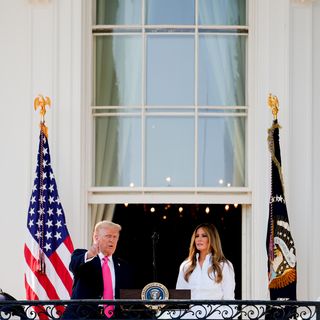I spend $200 a week on groceries for my family of 5. Staying on budget is difficult, so I swear by these cost-saving strategies.
filadendron/Getty Images
- I stick to a $200 weekly grocery budget to feed a family of five.
- I use store apps to clip digital coupons, watch for sales, and plan our meals.
- By keeping a list and buying in bulk when it makes sense, I waste less and save more.
For me, grocery shopping is more of a game of strategy than a chore.
With a family of four, plus one more when my oldest daughter comes home on weekends, I stick to a weekly food budget of $200. There's a little wiggle room, but definitely nothing over $250. If something doesn't fit into this week's budget, it simply gets bumped to next week's list.
That kind of discipline helps me stay in control and avoid unnecessary stress. These days, prices are high, so I've had to get smarter about how and where I spend my money.
I always monitor weekly sales, clip digital coupons, and plan meals ahead of time. I've started treating grocery shopping like some follow the stock market: I look for patterns in sales, plan my moves, and try not to let emotion lead the way.
Tracking coupons for different stores helps
I have memberships at both BJ's and Sam's Club, but my mom and I split the cost to make it more affordable. They each have their place in my routine.
BJ's is great for finding digital coupons. Their app tracks what you buy most often and offers coupons on those items. That saves time and money. Before each trip, I go through the app and load the deals I need right into my account.
Sam's Club is where I grab all my paper goods like toilet paper, paper towels, and facial tissue. Their store brand has become a staple in our household. I've tried switching it up for cheaper options before, but the quality is solid and worth the price.
Aldi will always be my spot for produce. I don't need bulk amounts of fruits and veggies, so I shop there for just what we need: celery, lettuce, tomatoes, and fruits. Their prices are reasonable, the quality is consistent, and because I'm buying smaller quantities, I don't end up tossing spoiled food later in the week.
Planning meals ahead of time helps me avoid waste
Every week, I ask my family what they want to eat. That keeps everyone happy and gives me a clear direction when I sit down to plan meals. I always cook enough to have leftovers, which helps for the next day's dinner and cuts down on extra cooking.
I also buy extra of things we use a lot, especially when they're marked down. If chicken thighs are on sale, I'll grab a few packs and freeze them.
But I don't believe in hoarding. I've learned that if you buy too much of something just because it's cheap, you can end up tossing it later. Plus, I can't stand clutter. I aim for a healthy middle ground: enough stored to be prepared but not so much that it turns into waste. There's real value in being stocked, not stuffed.
Lists keep me focused and help me avoid spending extra
I never shop without a list. Before each trip, I go through what we have, check what's on sale, and write down exactly what we need. That list is what keeps me from grabbing extras that weren't in the plan.
And I don't play about being in a store too long. I actually map out my route in the grocery store in advance based on what's on my list. If I don't need paper goods, I'm not walking through that aisle. There's no point in wandering just to "see what's there." That's how people blow their budget.
I move through the store with intention and purpose. Aimlessly browsing aisles might work for people with no budget, but I've got a household to feed, and every dollar matters.
This routine helps our budget and meals go further
This shopping method has helped me stretch our budget without sacrificing the kinds of meals we enjoy. I'm not just saving money, but I'm also being more intentional about how I feed my family.
The best part is, we all have a say. Asking my family what they want to eat takes some of the stress off me and helps avoid wasting food no one asked for. It's also easier on the budget when I'm not guessing.
We keep a shared shopping list so everyone can add what we're running low on. It turns grocery planning into more of a team effort, and it's made us more intentional about where our food budget goes.

